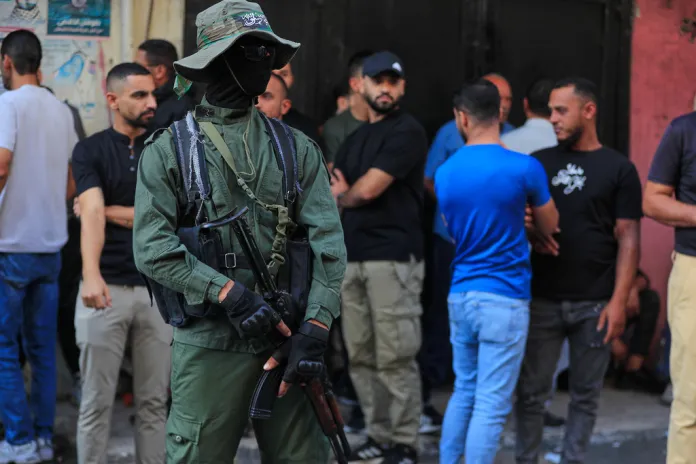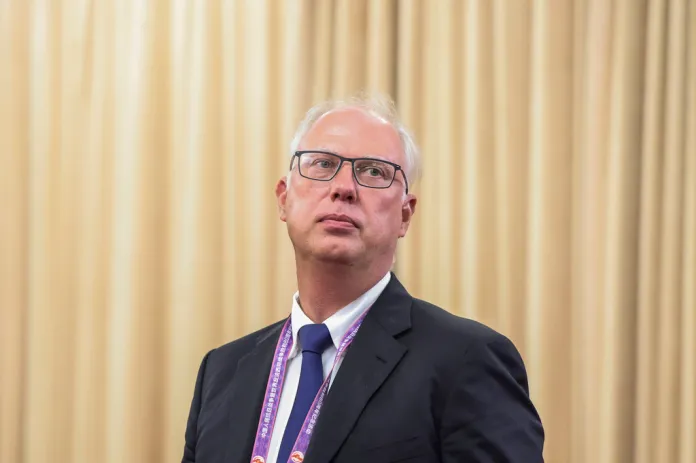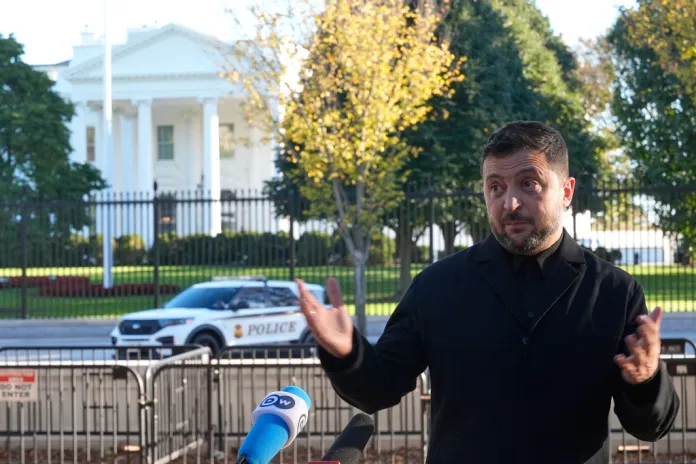Nobel Peace Prize: The Most Controversial Winners
The Nobel Peace Prize was established in 1895, and is one of five “Nobel Prizes” established by the will of Alfred Nobel, a Swedish industrialist, inventor and armaments manufacturer. In addition to the Peace Prize, there are Nobel Prizes for Chemistry, Physics, Physiology or Medicine, and Literature.
Every year, the Norwegian Nobel Committee awards the Nobel Peace Prize “to the person who shall have done the most or the best work for fraternity between nations, for the abolition or reduction of standing armies and for the holding and promotion of peace congresses.” The Peace prize is presented on December 10, and is the only prize that is sometimes awarded to an organization instead of an individual.
With nominations for this year’s Nobel Peace Prize beginning to trickle in, including Jared Kushner, Stacey Abrams, and Black Lives Matter, we should remember that this is not the first year that nominations and recipients of the Nobel Peace Prize have stirred controversy. Here is a list of previous recipients whose awards raised eyebrows.
Barack Obama (2009)
Then President Barack Obama was awarded the Nobel Peace Prize in 2009 “for his extraordinary efforts to strengthen international diplomacy and cooperation between peoples,” and because Obama’s “diplomacy [was] founded in the concept that those who are to lead the world must do so on the basis of values and attitudes that are shared by the majority.”
In 2015, former Nobel secretary Geir Lundestad said that he regretted awarding Obama the prize, saying, “No Nobel Peace Prize ever elicited more attention than the 2009 prize to Barack Obama.”
“Even many of Obama’s supporters believed that the prize was a mistake,” he said. “In that sense the committee didn’t achieve what it had hoped for.”
In 2016, a piece titled “Revoke Obama’s Nobel Peace Prize” was published by the Cato Institute, which criticized Obama’s foreign policy.
“Four years [after Obama’s award], Christof Heyns, the United Nations special rapporteur on extrajudicial killings, summary or arbitrary executions, told a conference in Geneva that President Obama’s drone strike program threatens 50 years of international law by encouraging other states to violate long‐standing human rights standards.”
“The New York Times also reported that President Obama has taken military action in a total of seven countries — Iraq, Afghanistan, Syria, Libya, Pakistan, Somalia and Yemen — without the authorization of Congress. If you include covert military actions taken by special operations forces, the list is longer and the impact much broader.”
Yasser Arafat (1994)
Alongside Yitzhak Rabin and Shimon Peres, Yasser Arafat was awarded the Nobel Peace Prize in 1994 “to honour a political act which called for great courage on both sides, and which has opened up opportunities for a new development towards fraternity in the Middle East,” after peace negotiations in Oslo.
Arafat was the Chairman of the Palestine Liberation Organization (PLO) from 1969 to 2004, and President of the Palestinian National Authority (PNA) from 1994 to 2004. He was also a founding member of Fatah, a Palestinian political party which was viewed as a terrorist organization by the Israeli government and the United States Department of State and United States Congress until it renounced terrorism in 1988. The PLO had multiple links with terrorist and military groups, including Black September which carried out the Munich Olympics massacre in 1972.
In reality, Arafat routinely scuppered opportunities for peace, preferring an endless cycle of accords and violence. When he refused peace agreements in 2000, for example, President Clinton responded, “You are leading your people and the region to a catastrophe.” In 2002, former Israeli prime minister Ehud Barak said that Arafat “did not negotiate in good faith; indeed, he did not negotiate at all. He just kept saying no to every offer, never making any counterproposals of his own.”
In 2003, the International Monetary Fund audited the PNA, stating that Arafat had diverted $900 billion in public funds. Later, a team of American accountants hired by Arafat’s own finance ministry claimed that the Palestinian leader’s secret portfolio was valued at almost $1 billion, and that “although the money for the portfolio came from public funds like Palestinian taxes, virtually none of it was used for the Palestinian people; it was all controlled by Arafat. And none of these dealings were made public.”
Aung San Suu Kyi (1991)
From 2016 to 2021, Aung San Suu Kyi served as State Counsellor of Myanmar, and was arrested in a military coup on February 1 after the 2020 general election in Myanmar was declared as fraudulent by the military.
Suu Kyi was awarded the Nobel Peace Prize in 1991 “for her non-violent struggle for democracy and human rights.” However, in 2017 critics called for her prize to be revoked in response to her silence regarding the persecution of Rohingya people, Myanmar’s Muslim minority. In 2013, she denied that Muslims in Myanmar had been subject to ethnic cleansing, and insisted that the tensions were due to a “climate of fear” caused by “a worldwide perception that global Muslim power is ‘very great.’”
In 2017, U.S. Secretary of State Rex Tillerson said that Myanmar was facing a “defining moment,” noting “I think it is important that the global community speak out in support of what we all know the expectation is for the treatment of people regardless of their ethnicity… This violence must stop, this persecution must stop.”
In March 2018, the United States Holocaust Memorial Museum revoked Suu Kyi’s 2012 Elie Wiesel Award, citing her failure “to condemn and stop the military’s brutal campaign” against Rohingya’s Muslim minority, and in May 2018, Britain’s International Development Committee released a report which considered Suu Kyi complicit in the crimes against Rohingyas.
Henry Kissinger and Lê Đức Thọ (1973)
U.S. Secretary of State Henry Kissinger and Vietnamese revolutionary Lê Đức Thọ were jointly awarded the Nobel Peace prize “for the 1973 Paris Peace Accords intended to bring about a cease-fire in the Vietnam War and a withdrawal of the American forces.”
All U.S. combat activities were suspended on January 15, 1973, and the Paris Peace Accords were signed on January 27 1973. All US forces personnel were completely withdrawn by March that year.
Lê Đức refused to accept the prize, saying that such “bourgeois sentimentalities” were not for him, and that the agreements had not been followed. Kissinger told Soviet ambassador Dobrynin “I figure it like Groucho Marx said ‘any club that took him in he would not want to join.’ I would say that anything Lê Đức Thọ is eligible for, there must be something wrong with it.”
While critics cited Kissinger’s actions during the Vietnam War, he was also a controversial selection having supported the Turkish Intervention in Cyprus and being allegedly complicit in Operation Condor.
Notable Mentions
In addition, there were multiple other award recipients whose prizes were viewed as highly controversial. These included:
- Cordell Hull (1945) was President Franklin Delano Roosevelt’s Secretary of State, and was awarded as a “prominent participant in the originating of the UN.” However, Hull was among those who vehemently opposed allowing the St. Louis — a ship which carried over 950 Jewish refugees seeking asylum having escaped Nazi persecution — to enter the United States. Forced to return, over one quarter of the passengers on the St. Louis were murdered in the Holocaust.
- Al Gore (2007) was awarded the prize alongside the Intergovernmental Panel on Climate Change (IPCC) “for their efforts to build up and disseminate greater knowledge about man-made climate change, and to lay the foundations for the measures that are needed to counteract such change,” despite the winners’ work having nothing to do with achieving peace.
- The European Union (2012) received the prize for having “contributed to the advancement of peace and reconciliation, democracy and human rights in Europe” for over sixty years. This was viewed as controversial “given that several countries within the bloc maintained arms manufacturing industries and because its handling of the contemporary Greek debt crisis left many people’s lives the worse for the intervention.”
Ian Haworth is an Editor and Writer for The Daily Wire. Follow him on Twitter at @ighaworth.
The views expressed in this piece are the author’s own and do not necessarily represent those of The Daily Wire.
The Daily Wire is one of America’s fastest-growing conservative media companies and counter-cultural outlets for news, opinion, and entertainment. Get inside access to The Daily Wire by becoming a member.
" Conservative News Daily does not always share or support the views and opinions expressed here; they are just those of the writer."




